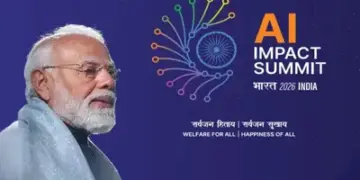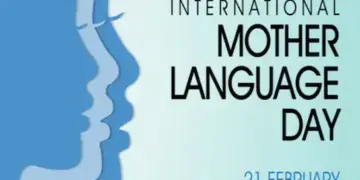By: Arshid Khan
In the vast and awe-inspiring realm of human cognition, where thoughts and ideas intertwine like the intricate threads of a tapestry, our brains are not mere passive recipients of information. No, they are far more complex than that. Our brains are intricate systems, influenced by a myriad of factors that shape our understanding of the world in ways that are both fascinating and perplexing. Emotions, biases, and prior beliefs all play a significant role in the way we perceive reality, creating a complex tapestry that can make it arduous for facts to penetrate our mental defenses. This paradox, which has perplexed the minds of scientists and philosophers for centuries, has recently been the subject of extensive research, offering us a glimpse into the intricate dance between facts and beliefs that occurs within the depths of our minds.
At the core of our cognitive processes lies the intricate interplay between emotions, biases, and prior beliefs. Our minds, far from being purely rational machines, are influenced by a rich tapestry of emotions that color our perception of the world. These emotions, ranging from the sheer bliss of joy to the fiery intensity of anger, from the paralyzing grip of fear to the melancholic depths of sadness, can sway our judgment and decision-making in profound ways. They often lead us to embrace information that aligns with our emotional state, while simultaneously rejecting that which contradicts it. It is as if our emotions act as a lens through which we view the world, shaping our understanding and coloring our interpretation of the facts that come our way.
Moreover, biases, those subtle inclinations that shape our thinking, further complicate the already intricate landscape of our minds. Whether it be the confirmation bias, which predisposes us to seek out information that confirms our preexisting beliefs, or the availability bias, which skews our judgment based on the ease with which information comes to mind, these cognitive biases can create formidable barriers to accepting new facts. They act as filters, selectively allowing information that aligns with our biases to enter our consciousness, while discarding or distorting contradictory evidence. These biases, deeply ingrained within us, are often so subtle that we are not even aware of their influence on our thoughts and beliefs. They silently guide our thinking, shaping our understanding of the world without us even realizing it.
In the intricate tapestry of human cognition, our beliefs are not solitary entities but rather threads woven into the social fabric of our lives. As social creatures, we are deeply influenced by the opinions and beliefs of those around us. When confronted with facts that challenge our deeply ingrained beliefs, we often seek solace and validation from our social group, rather than critically evaluating the evidence at hand. This tendency, known as groupthink, can create an echo chamber effect, where dissenting opinions are dismissed, and alternative viewpoints are ignored, further reinforcing our existing beliefs. It is as if we find comfort in the familiarity of our own beliefs, seeking refuge in the warm embrace of like-minded individuals who validate our thoughts and shield us from the discomfort of cognitive dissonance.
While the realization that facts alone are often insufficient to change our minds may be disheartening, there is a glimmer of hope on the horizon. By delving into the intricate workings of our cognitive biases and the social dynamics that shape our beliefs, we can begin to chart a path towards fostering open-mindedness and critical thinking.
One strategy that holds promise is engaging in respectful dialogue, where we actively listen to and consider alternative perspectives. By embracing the diversity of opinions and engaging in thoughtful conversations, we can challenge our own preconceived notions and expand our understanding of the world. This process of intellectual exchange not only broadens our horizons but also cultivates empathy and understanding, fostering a more inclusive and intellectually vibrant society. It is through these conversations that we can unravel the complexities of our own minds, peeling back the layers of biases and emotions to reveal the core of our beliefs.
Furthermore, exposing ourselves to a wide range of perspectives is crucial in breaking free from the confines of our own echo chambers. By actively seeking out diverse sources of information, we can broaden our knowledge base and gain a more comprehensive understanding of complex issues. This exposure to different viewpoints helps us develop a more nuanced and well-rounded perspective, enabling us to critically evaluate facts and beliefs with greater clarity. It is through this exploration of diverse perspectives that we can transcend the limitations of our own thinking, expanding our intellectual horizons and embracing the richness of human thought.
In the intricate dance between facts and beliefs, our minds are both the stage and the audience. Understanding the multifaceted nature of our cognitive processes, influenced by emotions, biases, and social dynamics, allows us to navigate the complexities of our own minds with a newfound sense of awareness. By embracing the power of facts while acknowledging the limitations of our own thinking, we unlock the potential for growth and enlightenment. Let us embark on this journey of self-awareness, fostering open-mindedness and critical thinking, as we strive to create a society that thrives on intellectual vibrancy and inclusivity. Together, we can unravel the intricacies and nuances of the human mind, and in doing so, unlock the boundless potential that lies within us all.







